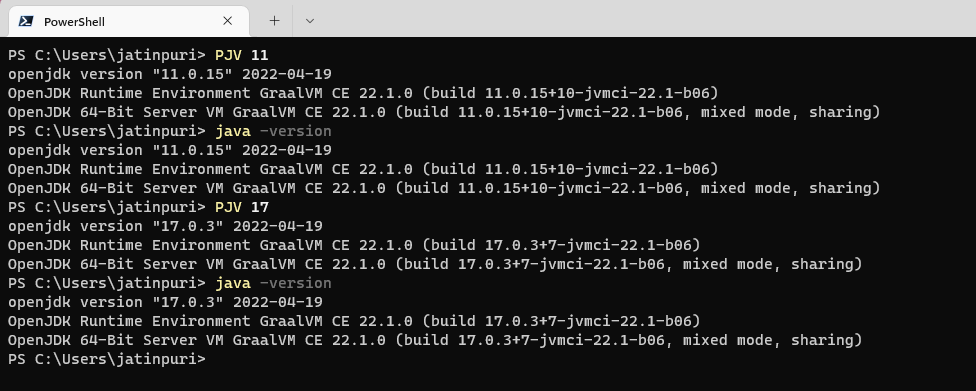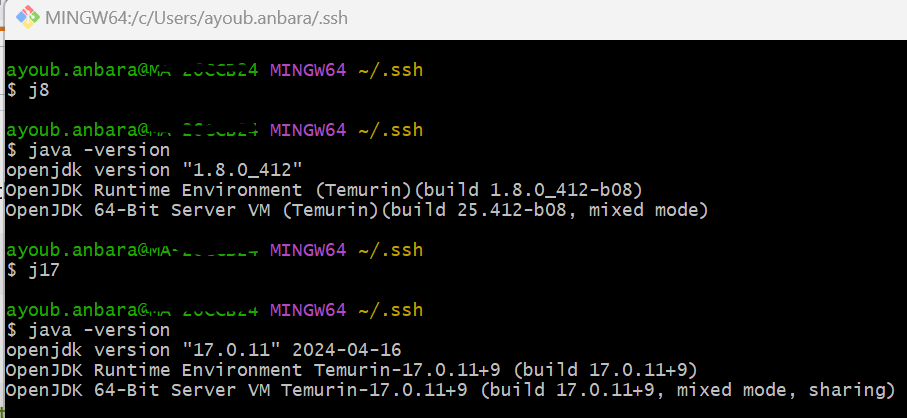I'm working on few projects and some of them are using different JDK. Switching between JDK versions is not comfortable. So I was wondering if there is any easy way to change it?
I found 2 ways, which should solve this problem, but it doesn't work.
First solution is creating a bat files like this:
@echo off
echo Setting JAVA_HOME
set JAVA_HOME=C:\Program Files\Java\jdk1.7.0_72
echo setting PATH
set PATH=C:\Program Files\Java\jdk1.7.0_72\bin;%PATH%
echo Display java version
java -version
pause
And after running this bat, I see right version of Java. But when I close this CMD and open a new one and type "java -version" it says that I still have 1.8.0_25. So it doesn't work.
Second solution which I found is an application from this site. And it also doesn't work. The same effect as in the first solution.
Any ideas? Because changing JAVA_HOME and PAHT by: Win + Pause -> Advanced System Settings -> Environment Variables -> and editing these variables, is terrible way...



